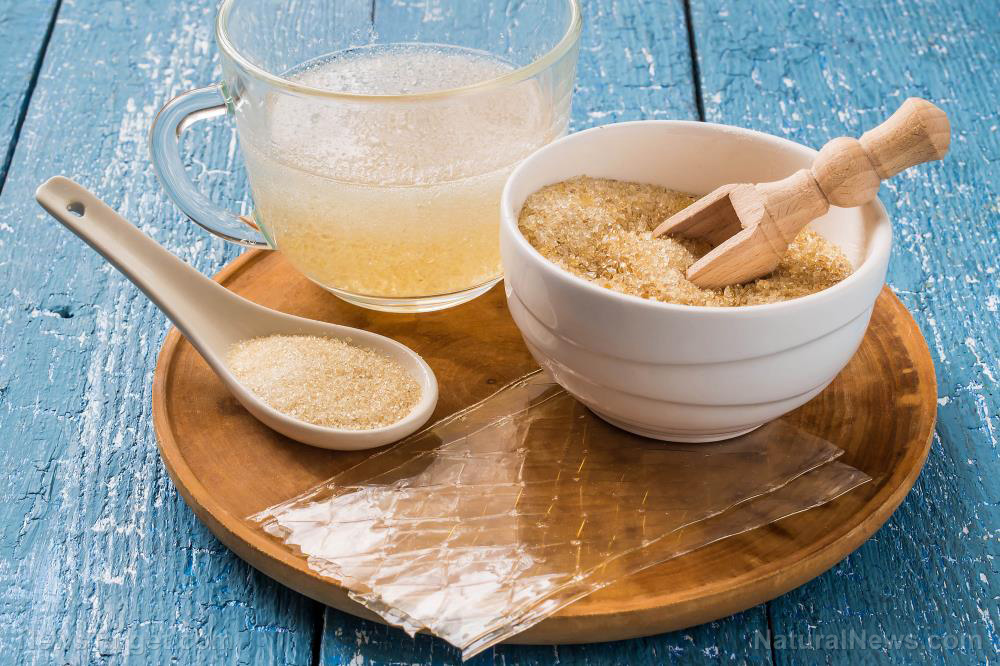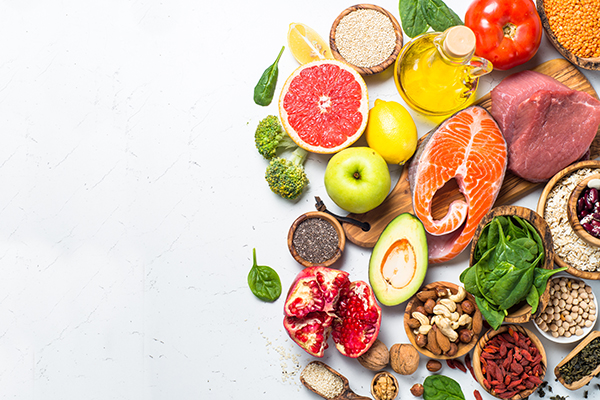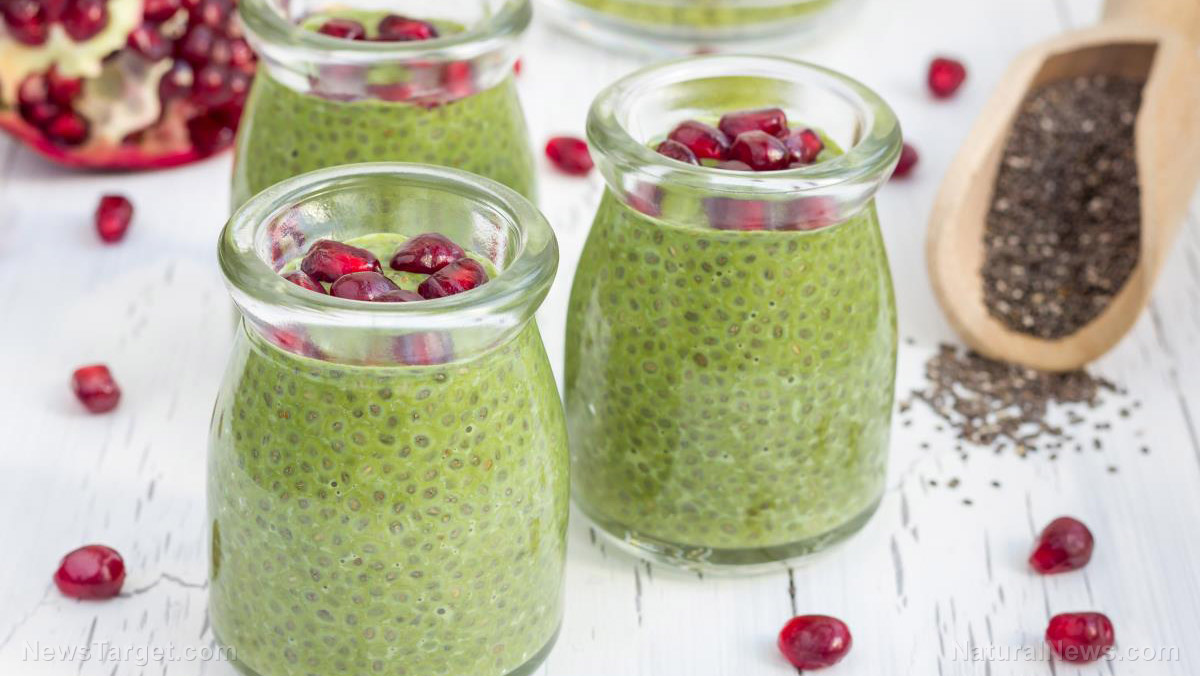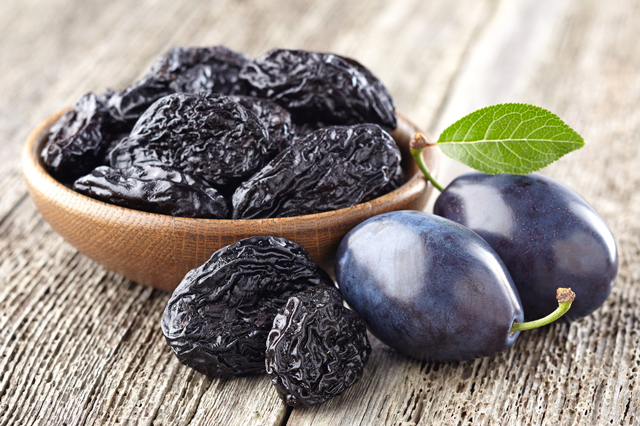4 Science-backed benefits of supplementing with collagen
11/23/2022 / By Olivia Cook

Collagen is an important protein found in the body’s connective tissues. This naturally produced protein provides structural support for the body and helps in cell regeneration. However, the body becomes less efficient with producing collagen as it ages, leading to diminished levels of this key protein.
Here are four science-backed benefits of collagen supplementation:
Supports healthy skin
In a 2019 study published in Nutrients, 72 healthy women aged 35 years or older were given “drinking ampules” that provided a blend of 2.5 grams of collagen peptides and other beneficial substances for 12 weeks. The study authors found that the collagen supplement improved skin hydration, elasticity, density and texture in some of the participants. They also found that these effects continued four weeks after the participants stopped taking the treatment.
Supports healthy nails
A 2017 paper published in the Journal of Cosmetic Dermatology showed that participants who took collagen supplements orally once daily for 24 weeks saw an improvement in the appearance of their nails. The improvements included a 12 percent increase in the growth rate of their nails. A decrease of 42 percent in the frequency of cracked and/or chipped nails four weeks post-treatment was also documented.
Supports healthy bones and joints
A randomized controlled trial published in the Journal of Agricultural and Food Chemistry back in 2012 investigated the effects of collagen in treating osteoarthritis. Eighty patients with osteoarthritis were listed as participants in the trial, with some of them experiencing serious joint pain. The study found that collagen reduced joint pain in patients with osteoarthritis to the point where they could participate in more physical activities.
Supports healthy cardiovascular function
A 2017 study by Japanese researchers published in the Journal of Atherosclerosis and Thrombosis found that collagen helped prevent atherosclerosis, the hardening and narrowing of arteries due to plaque buildup. Thirty-two study participants who consumed collagen twice daily for six months showed an improvement in their levels of high-density lipoprotein, the so-called good cholesterol. They also showed lower levels of low-density lipoprotein – known as the bad cholesterol.
Diet, lifestyle play key roles in collagen production
Nutritionists advise people to consume foods that aid in the body’s production of collagen. Tough meat cuts rich in connective tissue – brisket, chuck steak and pot roast – are ideal. The bones and skins of both freshwater and saltwater fish are also packed with nutrients that help in producing this protein.
Dairy, eggs, fish, legumes, poultry, soy and other high-protein foods are believed to nurture collagen production because they contain amino acids that make collagen. Legumes, meats, nuts, seeds, shellfish and whole grains all contain zinc, which contributes to collagen production. Vitamin C found in bell peppers, berries, citrus fruits, leafy greens and tomatoes also aids the body in this purpose
Aside from diet, healthy lifestyle habits such as avoiding excessive sun exposure, getting adequate quality sleep, avoiding smoking or secondhand smoke, controlling stress and regular physical activity may help increase collagen levels in the body.
However, collagen levels naturally decline with age. Collagen loss is often characterized by sagging skin, poor bone health, tendon degeneration and joint problems in the elderly. Boosting the body’s collagen levels with supplements is a prudent decision. (Related: Read this before you decide to take collagen supplement.)
Ultimately, it is best to consult a natural health practitioner before exploring possible options for collagen supplementation.
Watch this video that reveals the truth about collagen and supplements.
This video is from the FindingSolutions channel on Brighteon.com.
More related stories:
Boosting collagen intake is essential for cancer and heart disease prevention, advise researchers.
Analysis of bone collagen from Roman Britons reveal details about their diet and mortality rates.
Jellyfish plaster found to help chronic wounds heal: the collagen helps new tissue grow.
Sources include:
Submit a correction >>
Tagged Under:
aging secrets, alternative medicine, anti-aging, bone health, collagen, health science, heart health, joint health, natural health, natural medicine, nutrients, prevention, skin health, supplements
This article may contain statements that reflect the opinion of the author
RECENT NEWS & ARTICLES
AntiAgingScience.News is a fact-based public education website published by Anti Aging Science News Features, LLC.
All content copyright © 2018 by Anti Aging Science News Features, LLC.
Contact Us with Tips or Corrections
All trademarks, registered trademarks and servicemarks mentioned on this site are the property of their respective owners.




















